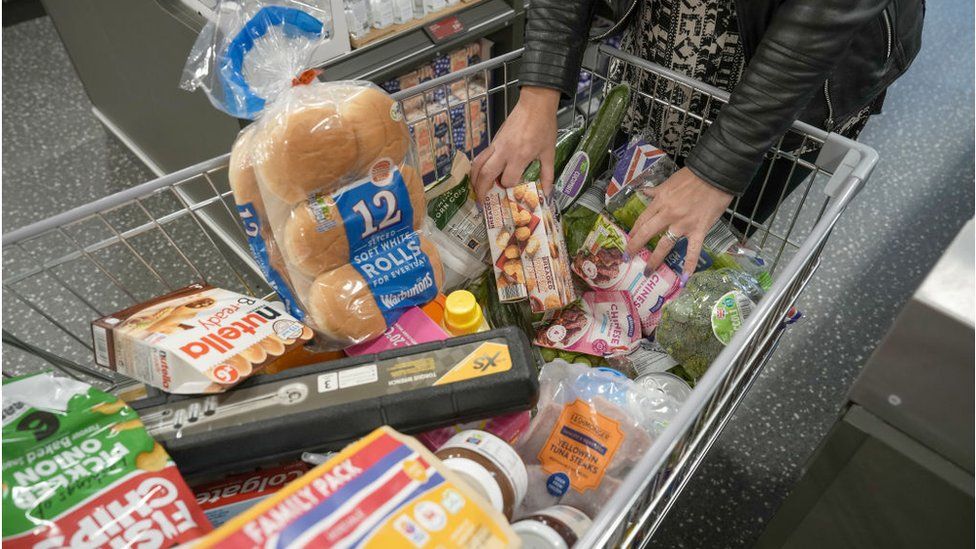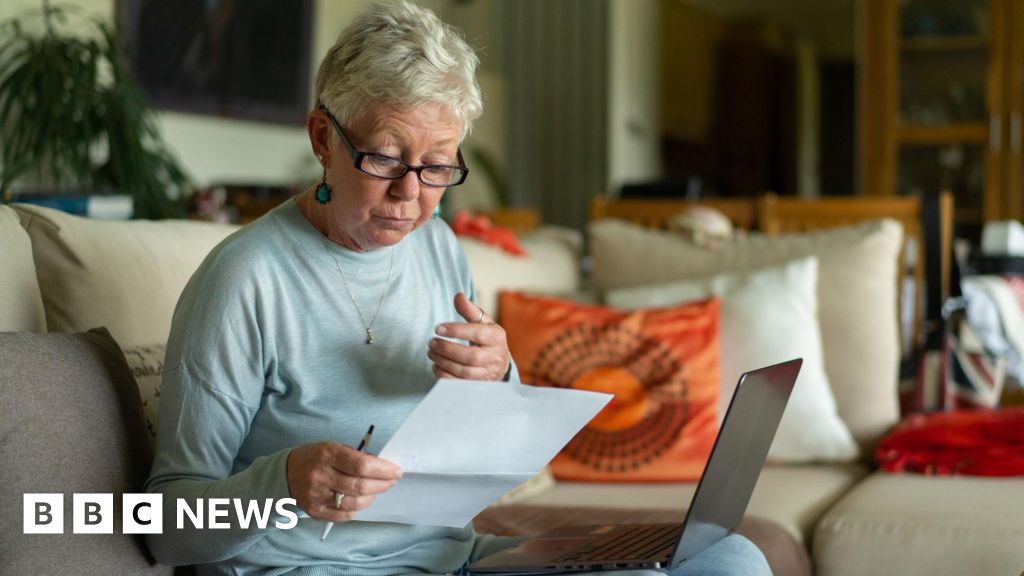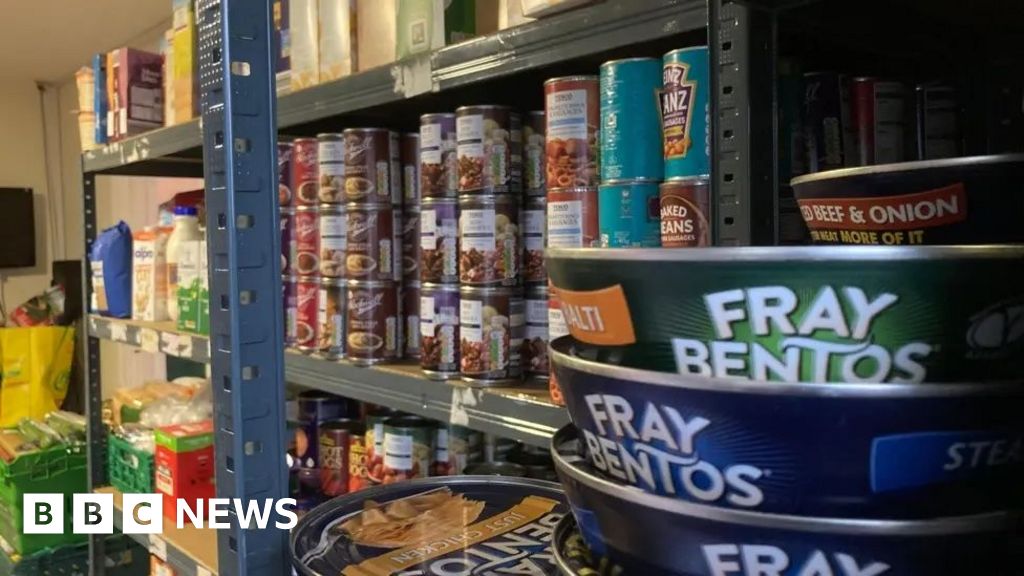ARTICLE AD BOX
By Emma Simpson
Business correspondent, BBC News
 Image source, Getty Images
Image source, Getty Images
The boss of Aldi has said customers are switching to the discounter "in droves" as the cost of living crisis continues to hit struggling households.
Aldi has gained more than 1.5 million customers in 12 weeks, UK chief executive Giles Hurley told the BBC.
The discounter has recently overtaken Morrisons to become the fourth biggest supermarket in the UK.
Rival discounter Lidl has also been gaining ground as shoppers seek to lower their bills.
There has been an "unprecedented" change in consumer behaviour as inflation has soared, Mr Hurley said.
"We're seeing customers switch in their droves," he said. "Customers are prioritising value like never before and switching their shopping to Aldi."
Mr Hurley said shoppers from "all of the traditional full-price supermarkets" were coming to Aldi.
According to the retail research firm Kantar, sales at Aldi were up 19% for the 12 weeks to September compared with the same time last year. If it keeps growing at this rate, it will add up to an extra billion or so pounds in sales this year.
"We haven't seen growth rates like this since the last recession," said Mr Hurley, referring to the recession in 2008-2009.
Giles Hurley said customers are 'prioritising value like never before'
Rival discounter Lidl is also seeing a rapid increase in sales.
Both businesses are still opening new stores, which is driving extra sales. Prices are also rising, which pushes up the value of sales.
But Mr Hurley insists that Aldi's popularity is broad-based.
"There's no doubt that some of our sales can be apportioned to new stores," he says.
"But the majority are coming from within the existing business as customers reappraise their search for value. It's not just about new shoppers, it's also about existing shoppers consolidating their shop at Aldi, and using Aldi as a first-stop shop."
Bargain hunting
Consumers are buying fewer big brands and putting cheaper own-label products in their shopping baskets instead.
According to retail research firm, Kantar, private label ranges now account for 51% of the market, compared to branded products.
Sales of the cheapest own label ranges are up by a third on last year.
More than 90% of products at Aldi are non-branded items.
Mr Hurley says the business is seeing growth across all categories, from a 20% increase in sales of its nappy range to a 29% rise in its premium Specially Selected range in the last three months.
Mr Hurley was speaking as the chain released its results for the last financial year covering the twelve months to the end of December 2021.
Aldi only racked up a small increase in sales compared with the previous year with revenues of £13.6bn, as it missed out on the online grocery boom during the pandemic.
Pre-tax profits fell by 87% to £36m. That's a net profit margin of less than a third of 1%.
Aldi says the fall was down to Covid costs, increasing staff pay and investing in prices.
Aldi is a privately-owned business, something which Mr Hurley says gives it a big advantage.
"We can look very much to the long term and not worry about short term results."
Like Lidl, the chain is part of a much bigger German-owned retailer. Both discounters are still expanding, unlike traditional supermarkets which are adding little, if any, new space.
Selling supermarket food is a highly competitive market, an industry that's driven by volume and market share.
"The bigger your sales, the more you can invest in your pricing and the better deals you can, in turn, get from your suppliers," says Duncan Brewer, head of the retail and consumer products strategy team at EY-Parthenon
"It's that flywheel effect. And of course, if your volume falls, the trickier things can quickly get. The grocery pie isn't getting any bigger so for the main supermarkets it's all about taking someone else's slice."
Aldi now has just over 970 stores. It's planning to open another 16 before the end of the year, with a target of hitting 1,200 stores by 2025.
It may be piling on shoppers, but Adam Leyland, editor-in-chief of the Grocer magazine, says Aldi isn't going to get things all its own way.
This is unlike during the financial crisis, when the big four chains raised prices too much, allowing the discounters to steal a march and begin their breakneck expansion.
"Pricing is far more nuanced than it used to be," he said. "It's not straightforward. All the established players have developed their entry-level ranges to be more competitive, with some price matching against the discounters on hundreds of lines.
"To maintain a price gap, discounter prices are around 15% cheaper than in continental Europe. It shows they're having to work a lot harder," Mr Leyland added.
Tesco and Sainsbury's have been price-matching Aldi on key products.
Asda has recently launched a revamped basic range, Just Essentials, and had to put a temporary limit on the number of products customers can buy to keep up with demand.
Aldi's big rivals are determined not to make the same mistakes again, but the cost pressures are enormous for every supermarket. Food prices on the shelves are rising at their fastest rate in more than a decade.
Mr Hurley wouldn't be drawn on how much more food price inflation is still to come, saying that the last few years had taught him it was "very, very difficult to predict the future."
Aldi's more efficient business model, he claimed, is better placed to insulate customers from rising prices right across the food supply chain.
So how much profit margin is Aldi prepared to sacrifice this year to protect shoppers?
"We always make value the cornerstone of our business. No matter what it takes," says Mr Hurley, a sign that he's determined to keep the pressure on.

 2 years ago
35
2 years ago
35








 English (US) ·
English (US) ·